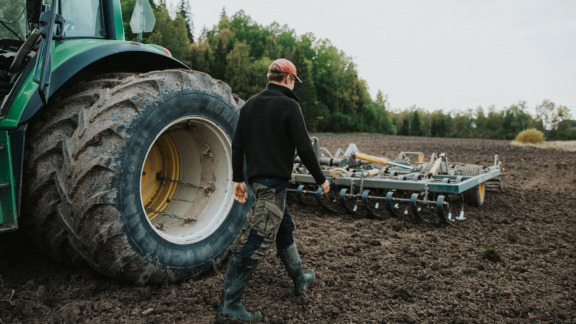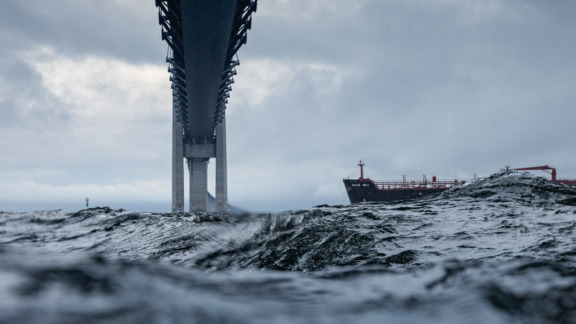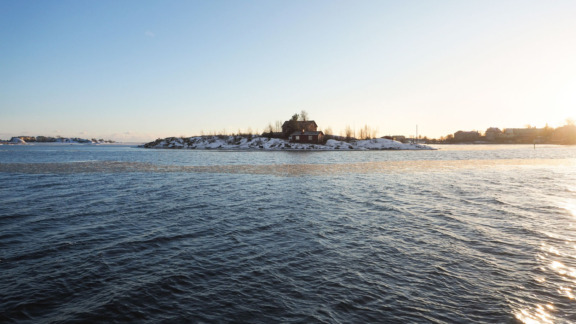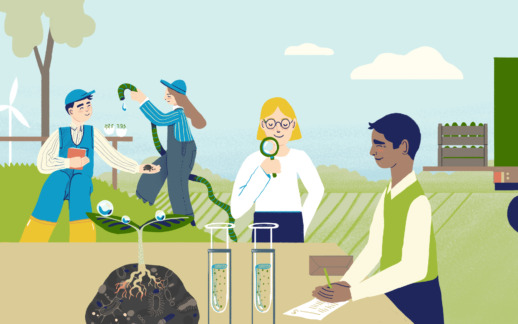NESTLÉ FINLAND MAKES A BALTIC SEA COMMITMENT DRIVING MORE ENVIRONMENTALLY FRIENDLY PRODUCTION OF IT´S LOCAL RAW MATERIALS
Nestlé Finland and Baltic Sea Action Group (BSAG) are starting cooperation which aims to curb climate change and eutrophication of the Baltic Sea. Nestlé Finland joins the Carbon Action Platform and makes a Baltic Sea Commitment. As part of the commitment, Nestlé provides training and support for farmers to transit their production into regenerative agriculture practices. The ingredients will be used in the local production for Piltti and Puljonki brands.
BSAG’s extensive Carbon Action Platform brings together financiers, farmers, advisors, researchers, and companies active in climate change. In cooperation with BSAG, training will be provided to local raw material farmers of potatoes, carrots, and onions used in Piltti baby food made in Turku and in Puljonki sauces and broths made in Juuka. The practices aim to improve the condition of the soil and to maintain and regenerate various ecosystems.
As part of the Baltic Sea Commitment, Nestlé Finland also wants to train its own personnel in regenerative farming and utilize this expertise in product development. The intention is also to export lessons from the Carbon Action Platform to other countries where Nestlé operates.
“We are really excited that Finland is one of the pioneers in regenerative farming. The cooperation with BSAG gives us the opportunity to get involved in this work on a very practical level. 65% of Nestlé’s CO2 emissions are generated in the primary production of raw materials. For this reason, in the coming years, Nestlé will invest heavily in developing environmentally friendly upstream activities. We believe that cooperation with farmers, researchers, and decision-makers is key in combating climate change”, says Ulla Luhtasela, Sustainability Manager Nestlé Nordic.
“We are pleased that Nestlé joins the Carbon Action Platform and the Baltic Sea work. Our cooperation will focus on operations in Finland, but of course, we are also interested in the impact a large international food company can make around the Baltic Sea and globally”, says Michaela Ramm-Schmidt, CEO of BSAG.
“For the time being, Piltti will be the only baby food produced in the Nordic countries which is driving the production of raw materials into regenerative farming practices. This change is part of Nestlé’s commitment to carbon neutrality by 2050. By this action, environmentally conscious parents will soon have the opportunity to provide their children with high-quality locally produced baby food with even more environmentally friendly raw materials”, explains Ulla Luhtasela.
Nestlé is committed to source 20% of its key raw materials globally through regenerative farming practices by 2025, and to achieve 50% by 2030. This commitment is part of Nestlé’s goal of halving greenhouse gas emissions by 2030 and achieving carbon neutrality throughout the whole value chain by 2050.
Baltic Sea Action Group (BSAG, Elävä Itämerisäätiö) is a non-profit foundation established in 2008. BSAG is working to achieve the ecological balance of the Baltic Sea. At present, BSAG is working in particular to promote regenerative farming and responsible shipping, and to protect biodiversity of the sea ecosystem. Read more: bsag.fi, carbonaction.fi



